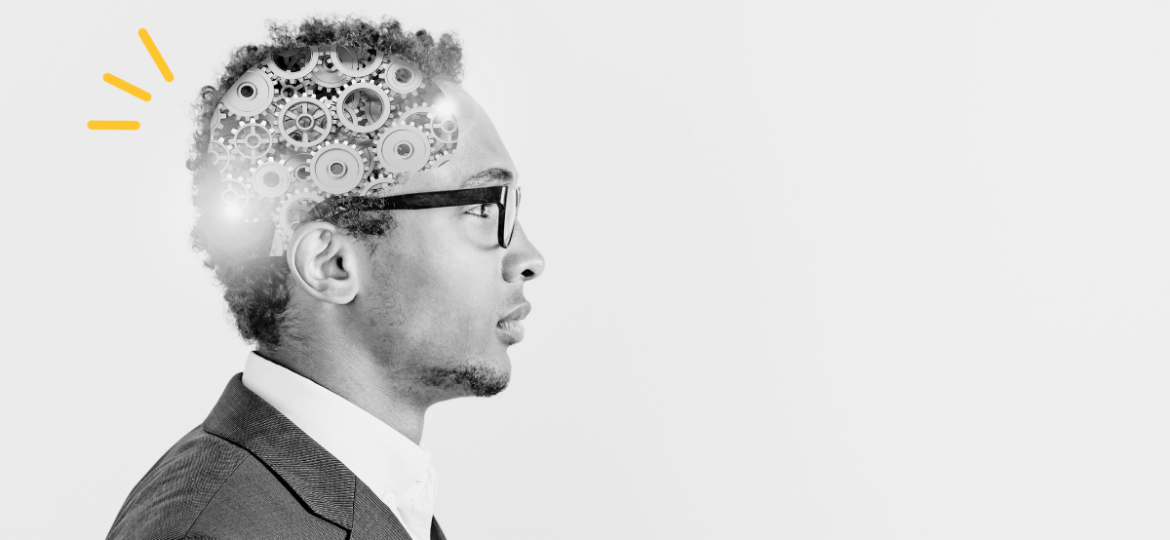
by Dr. Teresa Peterson
All month long, we’re going to be talking about uncertainty. And Friends, does it ever feel like the time lately, right?
Before we dive in, it’s important to note that uncertainty can affect us differently based on our biology, our physical health, our past experiences, the amount of power we perceive we have in a situation, our stress level, and so on. For our purposes in this article, we’re going to talk about what we know and what we’ve seen in this work with the understanding that certain conditions can impact the ease with which humans can handle uncertainty. Long story short: if you’re feeling it, it counts, and we want to talk about it.
From a cognitive standpoint, humans love predictability. Our brain eats that up. Because it uses a tremendous amount of energy, our mind naturally prefers shortcuts—predictability, patterns, the paths of least resistance. The more times we’ve seen something, the more material we have to draw from, the more likely we can go on autopilot and conserve that brain energy for engaging in deep thought about other, lesser-known things. Lovingly, I might call this “the minimum level of engagement with something, the better” because our mind has such an enormous job.
This isn’t a negative. If I’m going to make pork chops for dinner tonight, I’m going to make them the way I’ve made them for years, and my brain is going to be happy about that. No reading a recipe, no thinking about it too much: pork chops? Check. Energy conservation? Check. Little to no uncertainty there.
But what about the non-pork-chop moments? What about when things are uncertain, and our brain is starting to question and consider things it previously hasn’t before? Now, we’re as far away from cognitive energy conservation as we can be.
Let’s look at this through an organizational lens: Say you’re working on a critical project, and then resources are cut. You might be questioning not only the importance of that project, but also the relevance of your department, the capability of your manager to advocate for you, the company’s commitment to innovation, and so on. And so the snowball rolls down the hill.
This is important because, as Sarah says, doubt doesn’t party alone. It brings distrust with it. I’ve seen this. Recently, I was talking with someone who was shaken by some personal cuts at work. Her impression in the past had been that those who were not performing well were most often targeted by cuts. Because she carried her weight, she assumed she’d be safe and didn’t worry about it all that much. It wasn’t even a conscious choice; her brain had developed a playbook by now: don’t stress about the cuts, we know the rules of this game.
When the cuts didn’t go the way she assumed—they let go of a top performer who was highly specialized in his field, a move few people saw coming—it threw a massive wrench into things. Now, her brain switched to dysregulation: Wait, what’s the playbook on this? We don’t know the rules anymore.
Dysregulation as a result of uncertainty can manifest in a lot of different ways: questioning everything, second-guessing, exerting an unhealthy amount of control in other areas that are within your bubble to compensate, going down rabbit holes—all of which can affect the trust we have in other people, situations, organizations, systems . . . and ourselves.
When we’re dysregulated and experiencing uncertainty, our default stress responses activate, and moving forward in a healthy way can be a challenge. (Want more? Read: Understanding the Five Major Stress Responses) Stress like this disrupts the executive parts of cognition—the parts that judge, evaluate, focus, prioritize, decide.
It’s important to pause in these moments. It is unrealistic to expect yourself or others to act from a place of certainty and predictability when things feel upside down. It takes time to recalibrate—in our example of the unexpected cut from the team, that time was about six months.
It’s worth acknowledging that this might be more time than we want to take in some cases, but coming back to trust is a process—a worthwhile one.
What is your relationship with uncertainty? How does it manifest in your life? Tell us. We’d love to hear from you.
Resources
My OCD, Intrusive Thoughts, and the Book That Changed My Life
Episode 078: A Conversation on Intrusive Thoughts with Dr. Sally Winston and Dr. Martin Seif
The Elements of Trust in Leadership

Dr. Teresa Peterson
Dr. Teresa Peterson is the Director of Learning and Development for Sarah Noll Wilson, Inc. In her daily work, she serves as Sarah’s key content collaborator. Teresa enjoys facilitating, researching, and is passionate about applying best practices for learning to make our experiences meaningful, engaging, and accessible for all types of learners. Teresa holds a Doctorate in Education from the University of Northern Iowa and brings over twenty years of experience teaching, facilitating, and leading to our team. Our clients love Teresa’s grounded energy, depth of thought, and ability to listen deeply.

